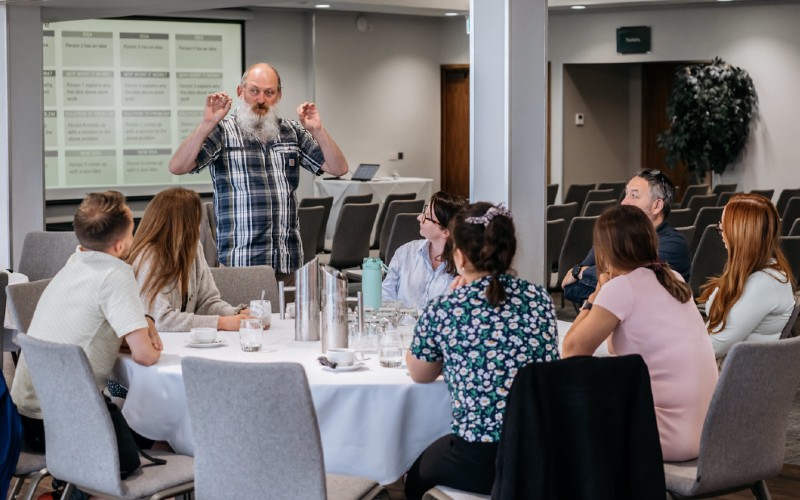The North East is becoming home to an accelerated number of female-founded digital technology startups, thanks to sustained investment from North of Tyne Combined Authority (NTCA).
The UK’s technology sector struggles when it comes to gender balance; only one in four tech sector workers are women – an alarming statistic when compared to the labour market as a whole, where 50% of workers are women.
Moreover, women make up less than 5% of UK tech startup founders, with numbers even lower in North East England than the already pitiful national average.
Yet there are some indications of green shoots ahead for the region, according to local technology sector expert Jamie Hardesty.
“It is no great revelation to say that we desperately need more female founded tech companies in the North East,” said Hardesty, who is head of communications and stakeholder engagement at tech sector support organisations Sunderland Software City, Dynamo and Digital Catapult North East Tees Valley.
“Diversity and inclusion remain a perennial challenge for tech ecosystems across the UK, we are no different.
“However, it has been pleasing to see an increased number of female-founded tech startups emerge in our region in the last six to 18 months. While we have much work to do in this space, there are encouraging signs of increased female activity, as evident across numerous NTCA digital support programmes.”
NTCA has invested £10 million to support the growth of the digital sector across the North of Tyne, pursuing an ambition of digital growth and innovation.
Over the next five years the North of Tyne digital economy aims to create 1,300 new tech businesses, increase tech company revenues by £425m and support 10,000 new tech employees to enter the workforce, all underpinned by 99% of the region being connected to gigabit fibre/5G infrastructure.
Flagship sector support programmes include Digital Pathfinders, Digital Cluster and Digital Business Pipeline, which aims to grow the number of new technology businesses emerging in the sector via industry-leading activity such as the Ignite accelerator.
Almost two in five business leaders supported by Digital Pathfinders have been women while Ignite North of Tyne has so far supported 37 high potential tech startups, 35% of which have been made up of at least one female founder.
Hardesty continued: “Tech must be open and accessible for everyone to benefit from. It’s promising to see, and already proving valuable to the sector, that the programmes NTCA have commissioned have been built with inclusivity in mind.
“Yes, we need dedicated resources and networks for women to access but it’s imperative that all sector activity is made up of an inclusive DNA, horizontally across the board, which allows everyone to benefit. We simply cannot afford to be complacent when it comes to intersectionality in tech. I do believe, from what I’m seeing, we have started to make progress.”
One such tech startup to benefit from multiple NTCA sector support is Polybox, founded by budding female entrepreneur Rojin Yarahmadi, which helps businesses to gain insights into their financial data, providing automated reports and forecasts.
“There’s a reason why I’ve chosen to launch my business in the North East, and that’s because it’s a great place to get support and connect with other businesses,” said Yarahmadi.
Polybox launched in 2021, receiving testing, data and process support from Digital Pathfinders before going on to receive further technical and non-technical advice from Ignite to scale further.
Hardesty added: “We have outstanding female talent in this region, there’s no doubt about that. It’s important we build on recent breakthroughs; therefore, I’d encourage anyone interested in learning how to get involved in tech or considering starting a business to get in touch.”
Why an operating background is crucial to investment decisions


